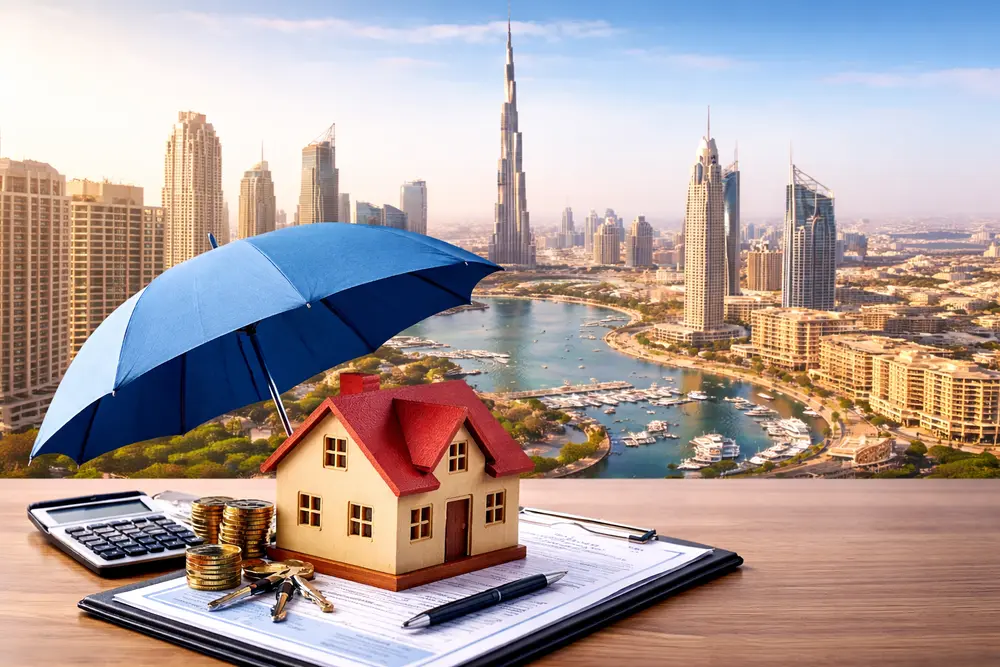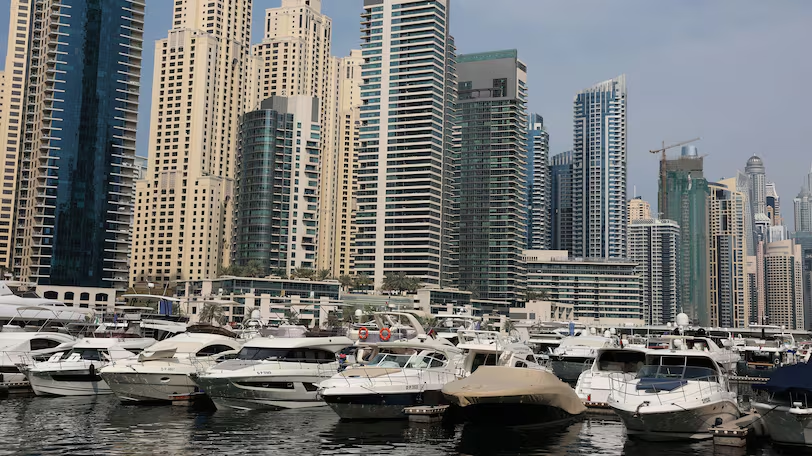Dubai Real Estate Market Forecast 2025: Trends and Predictions

As Dubai approaches 2025, its real estate market is positioned for sustained growth and stability, defying earlier downturn predictions. This strength is driven by solid economic fundamentals, strategic urban planning, and supportive government policies.
Market Performance and Resilience
Dubai’s real estate sector has shown notable growth through the first half of 2024. The UAE economy, projected to expand by 3.9%, is supported by low inflation and a growing population of 3.71 million. The market has seen the launch of 58 new projects and 39,000 property transactions, with high demand for one-bedroom apartments and a 26% increase in villa prices. Areas such as Dubai Marina and Downtown Dubai remain attractive for both short-term and long-term investments.
Looking ahead, experts project a price growth of 6-7% annually across the market, with high-yielding areas such as Dubai South, Expo City, and Jumeirah Village Circle expected to see the highest levels of demand.
Looking ahead, experts project a price growth of 6-7% annually across the market, with high-yielding areas such as Dubai South, Expo City, and Jumeirah Village Circle expected to see the highest levels of demand. The Dubai 2040 Urban Master Plan will continue to enhance the attractiveness of these areas by improving infrastructure, public spaces, and transport links.
Economic and Demographic Drivers
Dubai’s diverse economy and steady population influx are key to its real estate market’s resilience. The population grew by over 50,000 in the first half of 2024, highlighting increasing demand for housing. This demographic growth, coupled with economic expansion, supports continued demand across various property segments.
Project Completions and Market Supply
The market saw the introduction of 13,000 new units across 58 projects in early 2024, contributing to a total supply of over 66,000 units, with apartments making up 78% and villas 22%. This distribution reflects a preference for apartment living due to urban convenience and affordability. A 10-15% increase in project completions is anticipated compared to 2023, indicating a healthy development pipeline.
However, potential challenges related to oversupply could arise if demand does not keep pace with the rapid rate of project launches. Developers are addressing this by focusing on niche markets, including luxury villas and sustainable housing options.
Transaction Trends and Demand
In Q2 2024, Dubai recorded a record 39,000 property transactions, demonstrating robust demand for both under-construction and completed properties. The apartment sector led with 33,000 transactions, particularly for one-bedroom units. Despite a 1% rise in off-plan apartment prices, transaction budgets remained stable due to efficient space utilization. Villa transactions also increased, with a significant 26% rise in prices per square foot for ready villas.
Emerging trends indicate a growing interest in smart homes and tech-integrated residential spaces, especially among younger buyers. This shift is reshaping demand dynamics, with developers increasingly incorporating smart technologies in new projects.
Investment Strategies
Investors are employing short-term and long-term strategies.
- Short-term investments involve buying pre-launch properties and selling them post-completion for profit, especially in high-demand areas.
- Long-term investments focus on rental income, with areas like Dubai Marina and Downtown Dubai providing stable yields and strong returns.
For those seeking high returns, the villa market offers lucrative opportunities, with rental yields of up to 8% in suburban locations like Arabian Ranches and Damac Hills. Additionally, properties near major commercial hubs such as DIFC continue to attract international investors looking for stable, long-term growth.
Read more: Short-Term vs. Long-Term Rental in Dubai: Which is Right?

Rental Market Insights
The rental market saw a 6% increase in transactions from Q1 to Q2 2024. Apartments dominate rental demand, particularly in areas like JVC, Zaabeel, and Dubai Marina. The villa rental market has experienced faster price increases due to supply-demand imbalances, reflecting high demand for quality living spaces.
Key Developments and Future Outlook
High-profile projects, such as the Grande at The Opera District and various villa developments, have contributed to market vibrancy.
Additionally, Dubai's focus on luxury and branded residences is reshaping the market. Projects like Atlantis The Royal Residences and The Palm Tower are attracting high-net-worth individuals from around the globe, underscoring the city's appeal as a global luxury hub.
Looking ahead to 2025, Dubai’s real estate market is expected to maintain its upward trajectory, driven by ongoing infrastructure investments and the Dubai 2040 Urban Master Plan, which aims to enhance residents' quality of life and attract international investors.
Search for floor plans in Dubai
Impact of Recent Floods and Global Trends
Recent flooding had minimal long-term impact on Dubai’s real estate market. The government’s rapid response, including upgrades to the drainage system, has mitigated potential effects. Despite global economic fluctuations, Dubai’s property market remains resilient, with projected annual price and rent increases of 5-7% for 2024 and 2025.
Globally, Dubai continues to position itself as a safe haven for investors amidst geopolitical uncertainties. Its business-friendly environment, coupled with attractive visa reforms like the Golden Visa, has solidified its status as a top choice for international buyers.
Comparative Advantage and Affordability
Dubai offers significant value compared to other global cities. For instance, $1 million in Dubai provides more space than in cities like London or New York. The city’s strategic location, business-friendly environment, and safety enhance its appeal. The Golden Visa initiative and absence of property taxes further boost Dubai’s attractiveness as an investment destination.
| Read more: Best Arab Country to Live in |
Government Initiatives and Infrastructure Development
Government policies and infrastructure enhancements are key to Dubai’s real estate growth. Recent visa reforms and new transportation links drive demand. Dubai’s commitment to sustainability is reflected in green building regulations and innovative construction practices, which contribute to higher rental and resale values.
Buy off plan property in Dubai

Emerging Trends
The market is witnessing trends such as increased focus on sustainability with eco-friendly developments, rising demand for luxury and branded residences, and the need for affordable housing to meet diverse market needs.
The emphasis on affordable housing is growing, with government-backed initiatives aimed at ensuring middle-income residents can access high-quality living spaces.
This shift is expected to balance the market and cater to a broader demographic.
Future Challenges and Opportunities
Potential challenges include the risk of oversupply due to the rapid pace of new property launches, which could lead to a market cool-down and price corrections. However, Dubai’s reputation as a safe haven and its diverse investor base continue to attract interest, ensuring long-term growth prospects.
| Read more: Highest Paying Jobs in Dubai |
Conclusion
Dubai’s real estate market exhibits remarkable resilience and growth, supported by strong economic fundamentals, strategic planning, and effective government policies. With a positive outlook for 2025, driven by infrastructure development and a focus on sustainability, the market is set to continue its upward trend. Investors and residents can expect a dynamic and prosperous real estate landscape in Dubai, characterized by innovation and opportunity.
Explore Your Dream
At Homeland Realty, we are committed to helping you navigate Dubai's real estate market, even if a traditional down payment is a hurdle. From lease-to-own options to flexible developer payment plans and strategic partnerships, we provide solutions tailored to your needs. Contact us today to explore how we can help you achieve property ownership with minimal upfront investment.
Explore the best options with our team to make your dream of owning property in Dubai a reality, even with limited initial funds.
Read more:
Get In Touch
Latest Blogs

Is Moon Dubai ever taking off? Founders explain what comes next

Can Indians Buy Property in Dubai ?

Emaar reports record 2025 with highest sales, revenue and profit

Property All Risk Insurance Dubai: Comprehensive Protection for Your Property

